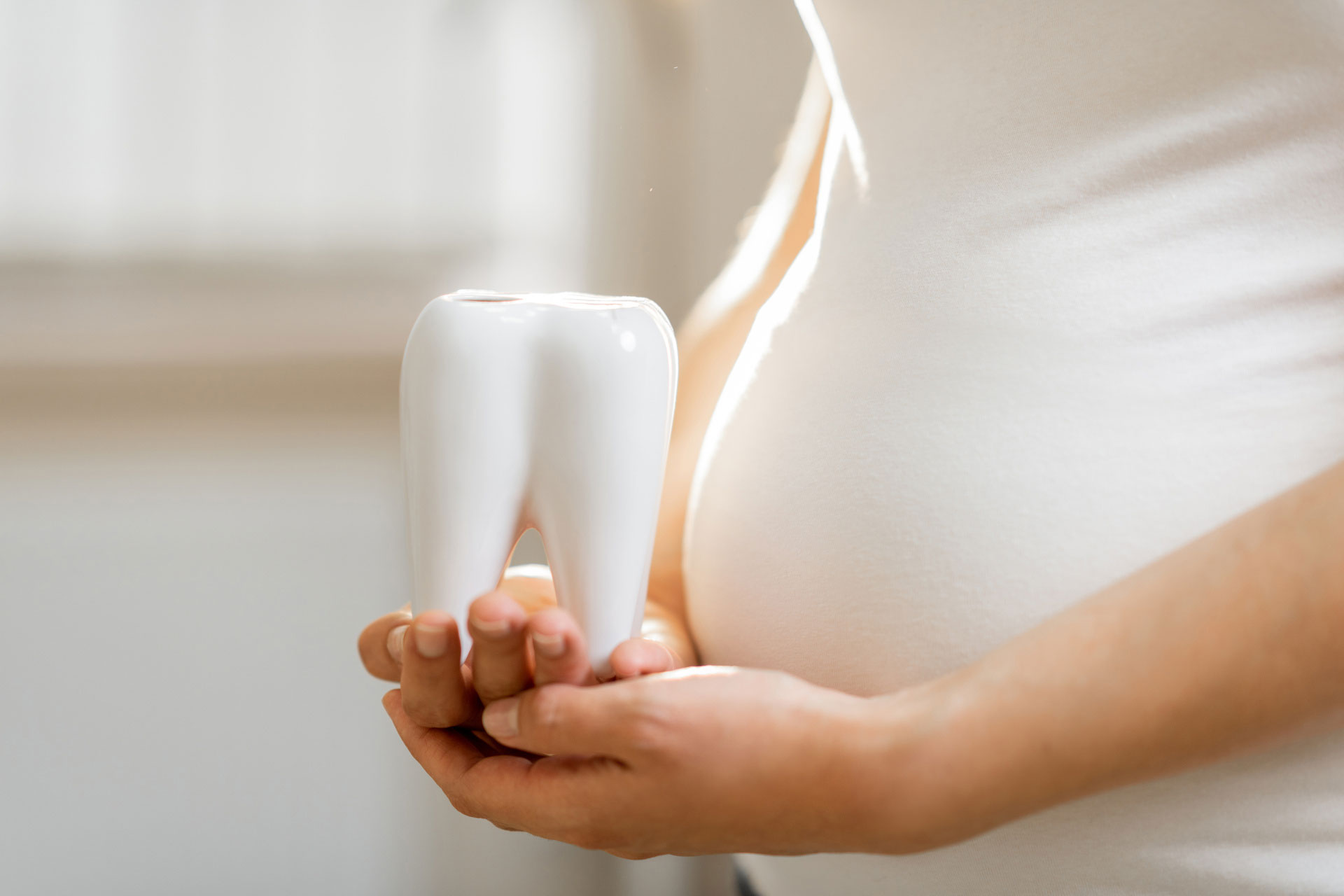Treating pregnant women
Pregnancy is a special time in every woman’s life – both emotionally and physically. The changes that come with pregnancy have a serious impact on a woman’s condition, including oral health.
Changes in the oral cavity of a pregnant woman
Most women between four and seven weeks of pregnancy experience nausea and vomiting, which can cause damage to the enamel, thus increasing the risk of dental caries. The gums are also at risk – due to hormonal changes in a woman’s body (primarily estrogen), gingivitis may develop at the beginning of the second trimester. Gums become overgrown, swollen, congested, and it’s much easier to damage them. The peak of inflammation is usually in the eighth month of pregnancy when the symptoms begin to decrease gradually. Soft tissue inflammation usually makes oral hygiene worse than before pregnancy. Combined with acidic saliva and frequent snacking, this results in an increased proliferation of pathogens that cause caries.
What can a pregnant woman’s poor oral health result in?
Dental caries is, in fact, not just a disease of the teeth, but it affects the entire body. Bacteria can infect other organs through the bloodstream and can also reach the placenta, which may result in premature birth and low birth weight of the newborn. The effects of gingivitis can be just as dangerous – research shows that advanced dental caries increases the risk of premature birth by up to eight times. Poor oral health can also contribute to the development of gestational diabetes.
Recommendations for pregnant women
Pregnant women should maintain proper oral hygiene through carefully selected care products. To reduce the risk of dental caries, it’s recommended that a woman eliminate sweets from her diet and refrain from snacking between meals. The symptoms of gingivitis may be reduced by appropriate products that relieve pain and inflammation. If possible, take care of the health of your teeth before you plan to become pregnant, and visit your dentist for check-ups every trimester during pregnancy. Contrary to a popular belief, dental treatment, or even the use of appropriate modern local anesthesia, doesn’t affect the condition of the fetus. Cooperation between the dentist and the attending obstetrician-gynecologist is advisable during pregnancy.
At Vinci Clinic, we attach great importance to prevention. Dental care offered at our clinic includes dietary recommendations, instruction in proper oral hygiene during pregnancy, and treatment of caries and periodontitis.

